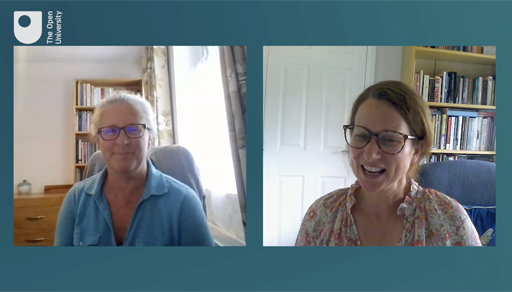4 Reflective activity
Take some time now to reflect on the learning you have just completed and how it has helped you to understand more about Froebel’s ideas and how they can support an understanding of young children’s engagement with the outdoors and nature. Before you respond to the reflective questions, watch the video of Sacha reminding you why Froebel’s ideas are considered to be relevant today:

Transcript
NICOLA KEMP: Why are Froebel's ideas relevant today?
SACHA POWELL: Good question. I think the first thing to say is that Froebel's ideas have never stopped being relevant, but I think they're especially relevant today because we're facing so many crises. Froebel has always promoted unity within connectedness with our natural environment, and our important relationships with the natural world, starting from birth.
And of course, with the climate crisis and our need to focus on preserving and protecting biodiversity, Froebel's ideas are highly relevant, and those ideas need to begin in the early years. I think also that we've got quite fragmented societies and we've got very unequal societies. And Froebel very much promoted equality and diversity within his broad concept of unity. And so more than ever, I think Froebel's ideas matter for 21st century early childhood education.
Families are becoming more disperate. And particularly, when we see migration and families travelling from areas of conflict, it's important to think about children's relationships which Froebel always stressed. And their prior experiences starting with the child. They know what matters to them, and often, that's family, culture, heritage, genealogy, and all those things are part of Froebel's philosophy.
I think one other thing that's hugely important is play. Of course, Froebel stressed play and play in nature as well. And I think that we now have so much research that tells us from all different fields about the value of play. And early childhood educators have always known about the value of play.
But there is categorical evidence about its importance and its value for children, which really supports Froebel's original ideas at a time where there wasn't the same kind of research that we have now or the kinds of evidence. So it confirms what Froebel believed about play being a central integrating mechanism in children's lives and learning.
Now have a go at answering the questions below in your Learning journal or the text box in the activity.
Activity 3 Reflecting on Session 3
- What did you find helpful about this session’s learning and why?
- What are the three main learning points you will take away from this session?
- How might you take on board some of Froebel’s ideas and change your practice with young children if you are a parent or carer?
